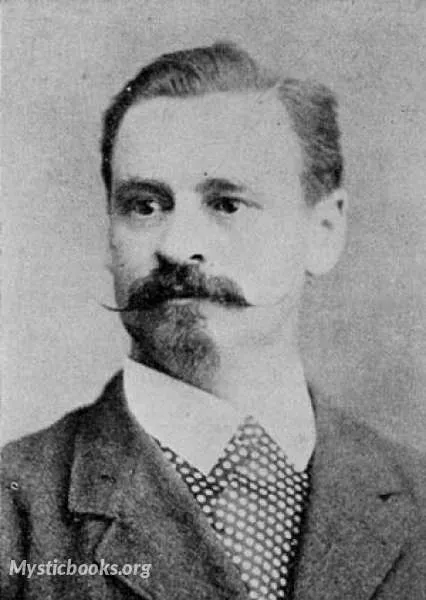 Joseph E. Badger 1848 - 1909
Joseph E. Badger 1848 - 1909Joseph Edward Badger, Jr., was born October 10, 1848, in Payson, Illinois. His father, Joseph E. Badger, Sr., came from a Massachusetts family of seafaring people, and his mother, Rachel Sarah Van Vorhees, from a Dutch family living in Pennsylvania. When Joseph, Jr., was a year old his parents moved to Quincy, Illinois, and in 1858 removed to Kansas, settling in Bellemont, Doniphan County, on November 10. This village was about six miles up the Missouri River from St. Joseph, and it was here that Joseph learned to swim and skate. As a boy he nearly lost his life by skating backwards and breaking through a hole in the ice, made by ice cutters. He was swept under but luckily came up beneath another hole and was rescued. Bellemont was a favourite starting point for freight outfits crossing the plains. Among the first to make the overland trip to California, after the discovery of gold there, were his father and two uncles, one of whom disappeared in that state. Joe's father originally ran a stove and hardware store in Bellemont, and the family lived upstairs. During the Pike's Peak excitement in 1859 Joe ran away from home, taking his pony, his dog, and a muzzle-loading shot gun, and joined a freight outfit going to Denver. Although only eleven years of age, he acted as hunter for the train. It is said that one day, surrounded by five Indians, and slightly wounded by two shots in the leg, he himself shot his first Indian.
On May 1, 1878, he was married to Miss Lotta Webb, of Frankfort, Kansas, and for a time thereafter worked in a wholesale house in St. Joseph. Later he lived in Frankfort, and when Beadle and Adams ceased buying stories, he started a cigar store and factory. After a few years, in the autumn of 1901, he moved his shop to Blue Rapids, Kansas. He ran his factory there only a few years; then his health failed after he had sustained a bad head injury from a fall which caused him to have severe headaches, and he bought an interest and later complete control of a billiard hall. The efforts of uplifters to ban billiard halls and bowling alleys from the town caused a falling off in business, and this, added to poor health, caused him to commit suicide in his pool hall in Blue Rapids by shooting himself through the heart with his double barreled shotgun, January 30, 1909. He left a widow, two daughters, and one son.